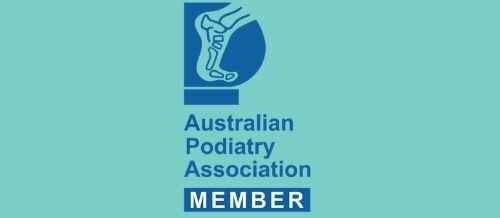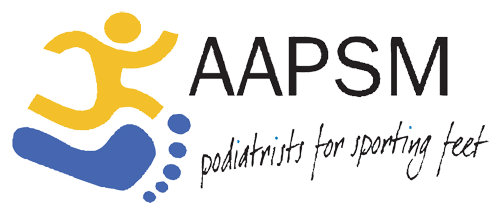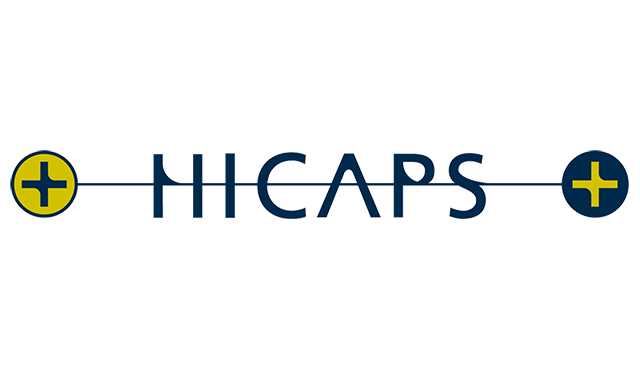Achilles Tendinopathy
Achilles tendinopathy is a common overuse injury that can cause acute pain, stiffness and inflammation in the Achilles tendon at the back of the heel. It often affects sportsmen, especially those who do a lot of running, as well as active adults, tradies who spend a lot of time on their feet all day, and older individuals who have tight or weak calves or wear poor footwear.
If left untreated for a prolonged period of time, this condition can worsen to the point that it leads to chronic pain or even tendon rupture. For this reason, it is important to diagnose and treat this condition early to prevent long-term damage and speed up your recovery time.
At Gold Coast Foot Centres, our experienced podiatrists specialise in treating Achilles tendinopathy. They are highly trained to diagnose the condition and offer personalised and evidence-based care to get you back on your feet and doing what you love to do, pain-free.
Contact us today to book an appointment.
What Is Achilles Tendinopathy?
As its name suggests, Achilles tendinopathy is a condition that affects the Achilles tendon. This is the thick band that connects your calf muscles to your heel bone, and it performs an important role when walking, running, and jumping by absorbing and releasing energy.
Tendinopathy is a broad term that includes both Achilles tendinitis (inflammation) and Achilles tendinosis (degeneration without inflammation). Some of its early-stage symptoms may include mild stiffness or aching, especially after rest or exercise.
If these symptoms are not treated promptly, they can develop into chronic pain, swelling, and a thickened tendon that limits mobility. That is why it is essential to have the stage of injury identified as soon as possible, as doing so will go a long way towards helping our podiatrists choose the right treatment.
Common Causes of Achilles Tendon Pain
As mentioned, Achilles tendon pain is often caused by overuse or repetitive strain. This is particularly true in the case of activities like running, jumping or prolonged standing, which is why runners, athletes, and tradies are commonly affected.
Indeed, poor biomechanics, such as flat feet or overpronation, can place extra stress on the tendon, which therefore makes it more prone to injury. Additionally, tight calf muscles are another contributing factor, as they tend to reduce a person’s flexibility and increase tension on the tendon during movement.
Other causes of Achilles tendon pain include a sudden spike in physical activity, such as increasing running distance too quickly or starting a new exercise routine. Both can also lead to irritation.
In addition, wearing footwear that does not have proper heel support or cushioning may further aggravate the tendon.
Symptoms of Achilles Tendinopathy
As the symptoms of Achilles tendinopathy often develop gradually, it can be easy to dismiss them at first. So, it pays to be aware of what they are.
Probably the most common sign is pain or stiffness at the back of the heel, which you might notice especially when getting out of bed or after long periods of rest. Many people also experience swelling, tenderness, and a noticeable thickening of the tendon or experience increased discomfort during or after walking, running, or climbing stairs.
As the condition progresses, you may notice that your everyday movements become more difficult. This is largely due to reduced flexibility or calf strength. Some of our patients also report a clicking or creaking sensation when moving the ankle, which can be a sign of tendon irritation.
If you’re noticing any of these symptoms, even if they appear mild, we recommend you get in touch with us immediately. Our podiatrists will be able to prevent further damage.
Achilles Tendinopathy Treatment at Gold Coast Foot Centres
At Gold Coast Foot Centres, we take a comprehensive, empathetic and tailored approach to managing Achilles tendinopathy.
Our experienced podiatrists use the latest evidence-based techniques to reduce your pain, improve your mobility, and help you maintain your tendon health over the long term.
Regardless of whether your condition is new or chronic, we focus firmly on identifying the underlying cause of it. After which, we provide all our patients with a structured treatment plan to help them recover in a quick, safe and effective manner.
Here is an overview of our process.
Gait and Biomechanical Assessment
During your consultation, we will perform a detailed gait and biomechanical assessment of your Achilles. This is an important step as it will help us to identify any factors, such as flat feet, overpronation, or uneven leg alignment, that might be contributing to the condition.
Essentially, the more we understand how your feet and legs move during walking and running, the more effective we will be in creating a bespoke treatment plan for you that reduces pain and corrects imbalances that may be straining the Achilles tendon.
Custom Foot Orthotics
If we determine that poor foot mechanics are adding stress to the tendon, we may prescribe custom orthotics. These inserts are designed to improve your foot alignment, support your arch, and reduce the load on your Achilles during movement to prevent future flare-ups.
Footwear Assessment and Advice
Wearing shoes that do not have good heel support or cushioning can significantly worsen your symptoms. For this reason, we’ll assess your current footwear and recommend some supportive options suitable for work, exercise, or everyday wear as necessary.
Shockwave Therapy
Shockwave therapy is a non-invasive treatment that uses acoustic waves to stimulate blood flow and healing in the affected tendon. In some cases, we might recommend it to patients as it can be a highly effective way to promote tissue repair and reduce pain for those with chronic Achilles tendinopathy.
Exercise and Strengthening Programs
At Gold Coast Foot Centres, we believe that rehabilitation exercises are essential to Achilles tendon recovery.
Our podiatrists will guide you through a personalised program that may include stretching, calf strengthening, and eccentric tendon loading exercises. The aim of which will be to rebuild your tendon strength and improve flexibility over time.
Dry Needling or Manual Therapy
If you are experiencing muscle tightness and to improve your circulation, we may address these issues by using dry needling or manual therapy techniques.
These therapies can be effective in releasing tension in the surrounding tissues. They can also expedite the healing of the tendon by improving your mobility and reducing any levels of discomfort.
Taping and Offloading Techniques
In the early stages of recovery, taping or offloading strategies can help to reduce stress on the tendon and enable you to enjoy better daily movement. Any sports taping techniques we suggest will be tailored to the level of activity you do and the severity of your condition.
Referral for Imaging
If your symptoms persist or worsen, we may refer you for imaging, such as an ultrasound or an MRI, to enable us to assess the tendon’s condition more closely.
Why Choose Gold Coast Foot Centres?
At Gold Coast Foot Centres, we pride ourselves on delivering expert care with a personal touch to all our patients.
Our experienced podiatrists have treated countless cases of Achilles tendinopathy and understand that no two patients are the same. That’s why we create bespoke treatment plans based around your specific condition, lifestyle and goals.
Using the latest technology (which may include shockwave therapy and advanced video gait analysis), we will accurately diagnose and effectively treat your condition at any of our clinics on the Gold Coast.
Our approach is based on evidence-based rehabilitation that focuses on long-term tendon health, not just short-term relief.
How to Prevent Achilles Tendon Injuries
The best way to prevent Achilles tendon injuries from flaring up is to adopt a few simple but effective habits.
For a start, sportsmen and more active adults should always include proper warm-up and cool-down routines in their exercise sessions to fully prepare and relax the muscles. This should include regular calf stretches, which help to maintain their flexibility and reduce tension on the tendons. Additionally, they should also do strengthening exercises to build up their resilience and long-term function.
It is also important to wear supportive, well-fitted footwear that provides them with adequate heel support and cushioning. As tempting as it might be, you are not recommended to make sudden changes in your activity levels, such as rapidly increasing your running distance or intensity, because this can overload your tendons.
Book an Appointment with Our Podiatrists
Is your Achilles playing up? Then book an appointment online or call us on (07) 5539 4484.
We operate out of clinics throughout the Gold Coast, including Paradise Point, Coolangatta, and Robina, and will do all we can to get you a same-day consultation.
FAQs
-
Usually, recovery from Achilles tendinopathy can take several weeks to months to heal, depending on the severity of your condition, your overall health, and how well you follow your treatment plan.
-
Yes, but you might find it uncomfortable to do so. Therefore, it’s important to manage your level of activity to avoid aggravating the tendon further.





